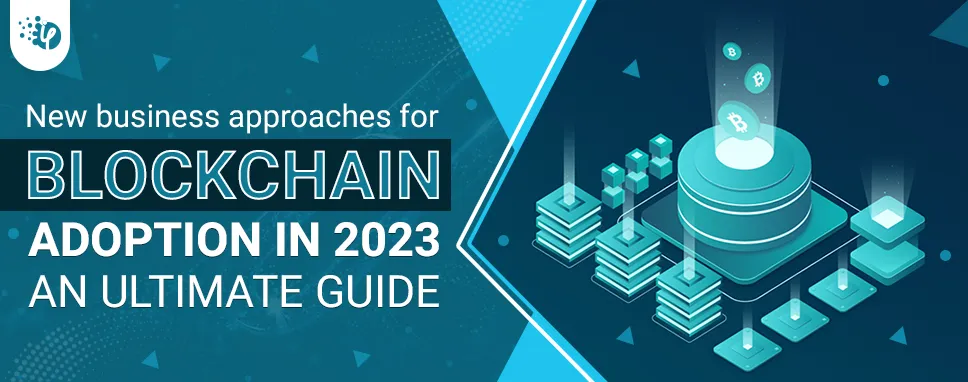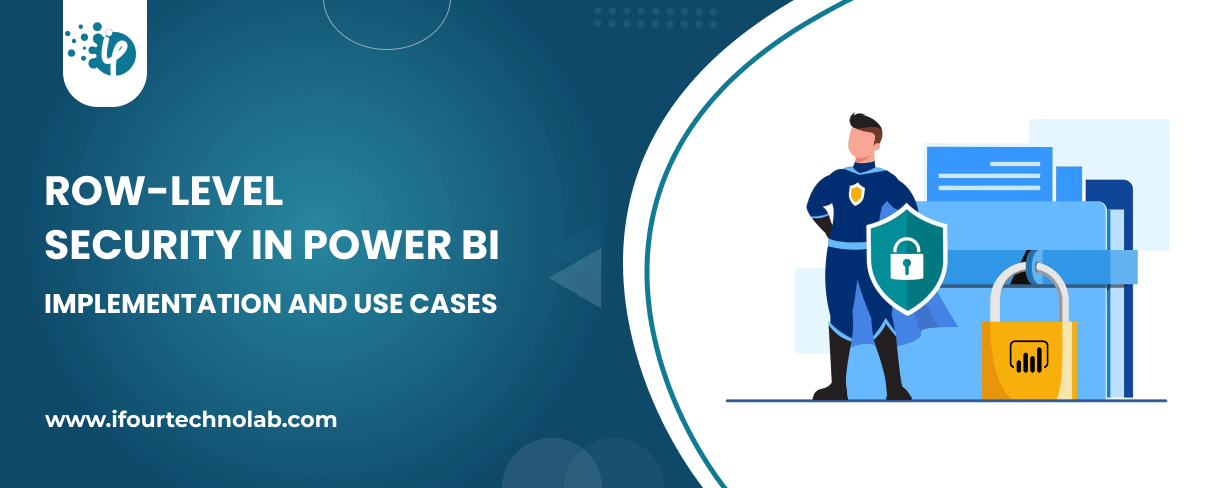Power BI Report Server: Key Features and Elements
Every CTO knows the struggle of managing complex reports. The inefficiency of scattered data, the constant juggling between reporting tools, the challenge of ensuring accurate KPIs...
Kapil Panchal - February 13, 2023
Listening is fun too.
Straighten your back and cherish with coffee - PLAY !

Blockchain technology has the potential to revolutionize the way businesses operate. It offers a way of storing and exchanging information securely and transparently, enabling parties to transact directly without the need for intermediaries. This can greatly reduce the time and cost associated with traditional transactions, while also increasing efficiency
What makes the Blockchain more interesting is its decentralized structure, which enables a significantly more secure environment for sensitive data by reducing the risk of failure. The technology allows businesses to establish smart contracts and automate many regular operations, freeing up critical resources for more strategic efforts.
Blockchain benefits
Blockchain technology has the potential to revolutionize various industries and has given rise to several business models. Some of the common types of blockchain business models are:
The crypto business model: It involves trading involves the trading of cryptocurrencies, where users can buy and sell digital assets using fiat currency or other cryptocurrencies.
Identity Management: Blockchain-based identity management systems allow for secure and decentralized storage of personal information, enabling individuals to control who has access to their personal data.
Decentralized Finance (DeFi) Platforms: DeFi platforms use blockchain technology to offer financial services like lending, borrowing, and trading of digital assets in a decentralized manner.
Supply Chain Management: Blockchain technology can be used to enhance transparency and efficiency in supply chain management, by creating a decentralized ledger that records every transaction in the supply chain.
Digital Identity Verification: This type of business model involves using blockchain technology for the verification of identities for various purposes, such as for KYC (Know Your Customer) in the financial industry.
Healthcare: Blockchain technology can be used to securely store and manage health records, ensuring privacy and increasing efficiency in the healthcare industry.
Gaming: Blockchain technology has found applications in the gaming industry, enabling players to buy, sell, and trade virtual assets and in-game items in a decentralized manner.
These are some of the common types of blockchain business models. However, with the continuous growth and development of blockchain technology, new business models are emerging regularly.
Blockchain technology offers a range of benefits that can help businesses achieve greater efficiency, security, and cost savings, while also improving customer trust. In fact, it helps businesses in forming trust with their consumers by enabling a transparent supply chain, guaranteeing that items are legitimate and sustainably sourced.
Blockchain applications are still evolving, and it may take a bit of time to become the most powerful platform ever. Blockchain adoption is expected to be the mainstream technology by 2025 and create a drastic transformation in businesses. The image below depicts the lifecycle of blockchain adoption for enterprises.
Blockchain adoption lifecycle
Because the technology is in the early stages of development, it's difficult to predict the exact new approaches that will emerge for blockchain adoption in 2023. However, based on current trends and developments in the blockchain space, some of the new approaches to business for blockchain adoption in 2023 could include:
With the proliferation of different blockchain platforms and networks, there is a growing need for interoperability solutions that allow for seamless communication and transfer of data and assets across different platforms. Businesses may explore the development of decentralized bridges and protocols that enable interoperability.
As blockchain adoption grows, scalability will become an increasingly important issue. Some of the factors that impact scalability in blockchain include Network bandwidth, consensus mechanisms, and processing power.
To address scalability issues, some blockchain platforms are exploring alternative consensus mechanisms, such as proof-of-stake, which is more efficient, or sharding, which allows the blockchain to be divided into smaller segments, reducing the processing demands on each node. Additionally, some platforms are working on off-chain solutions, such as Lightning Network for Bitcoin and Plasma for Ethereum, which allow for faster and more efficient processing of transactions outside of the main blockchain.
DeFi has been one of the fastest-growing areas in the blockchain space, and this trend is likely to continue in 2023. It is a growing ecosystem of financial applications built on blockchain technology that aims to provide financial services without the need for intermediaries.
DeFi has seen tremendous growth in recent years, driven by several factors, including:
DeFi-statistics
Businesses may explore new DeFi applications, such as decentralized insurance and yield farming, and develop new DeFi platforms to meet the growing demand for decentralized financial services.
Privacy and security are becoming increasingly important concerns in the blockchain space, and businesses may explore the development of privacy-focused blockchain platforms and applications that allow users to securely store and manage their personal data.
With the increasing concern about data privacy, many developers are exploring ways to use blockchain for privacy-focused development. Blockchain's decentralized architecture allows for the creation of applications that do not rely on a central authority to manage and store user data, ensuring that sensitive information is kept private and secure.
Moreover, the use of cryptographic algorithms in blockchain makes it nearly impossible for unauthorized parties to access or manipulate the data stored on the network. This makes it an attractive solution for various industries, including healthcare, finance, and the internet of things (IoT), where privacy and security are of utmost importance. Privacy-focused blockchain applications are also helping to address issues related to data breaches and unauthorized access to personal information, making it a valuable tool for user privacy and data protection.
The use of blockchain technology for identity management is growing, and businesses may explore the development of new identity management solutions that are built on blockchain platforms.
There are several examples of blockchain-based identity management systems that are being developed and used today:
These solutions could provide secure and decentralized storage of personal information, allowing individuals to control who has access to their data.
To summarize, Blockchain is a developing platform that will take some time to become stronger. It is changing the way companies function and connect with their customers. There are several sorts of blockchain business models, each with its own set of advantages and disadvantages. Decentralized public blockchain networks, such as Bitcoin and Ethereum, provide a transparent and secure platform for performing transactions. Private blockchain networks, on the other hand, such as consortium blockchain, provide greater control and security, making them ideal for enterprises that demand privacy and secrecy. Hybrid blockchain networks combine the security and privacy of private networks with the openness and decentralization of public networks to provide the best of both worlds.
Regardless of the type of blockchain business model, it is important for businesses to carefully consider their specific needs and goals in order to determine the most appropriate and effective blockchain solution. By leveraging the benefits of blockchain technology, businesses can improve efficiency, security, and transparency in their operations and better serve their customers.

Every CTO knows the struggle of managing complex reports. The inefficiency of scattered data, the constant juggling between reporting tools, the challenge of ensuring accurate KPIs...

The very first reason why you should implement Row Level Security is to foster trust, a crucial element for any business's success. Next, it reduces data clutter and helps you load...

The performance of Power BI is significantly influenced by two essential factors: design consistency and the rapid loading of BI elements. This holds true whether you choose Tableau...